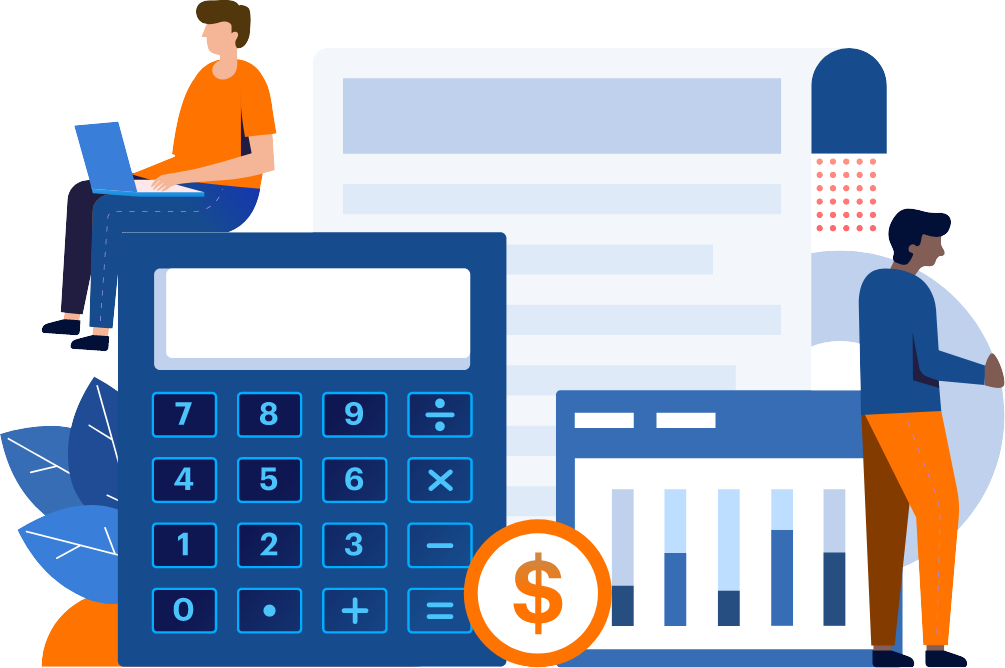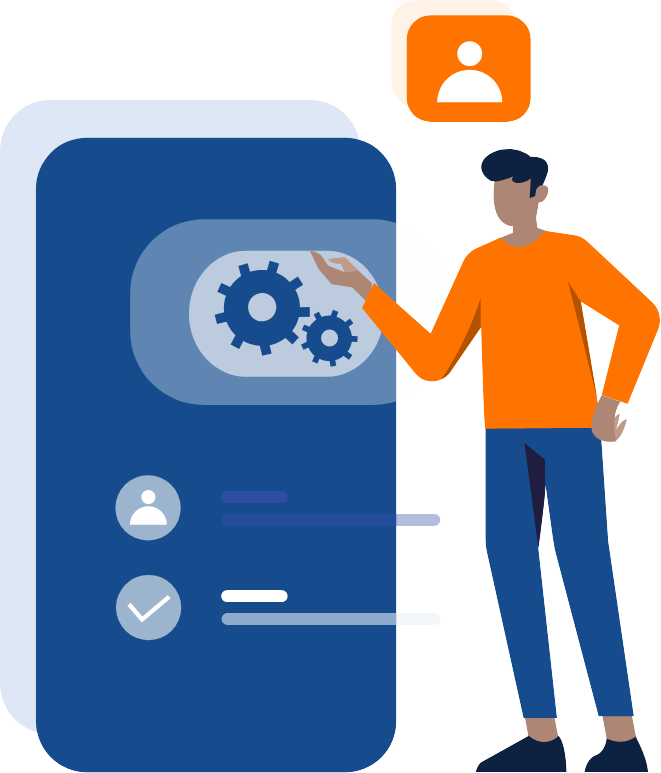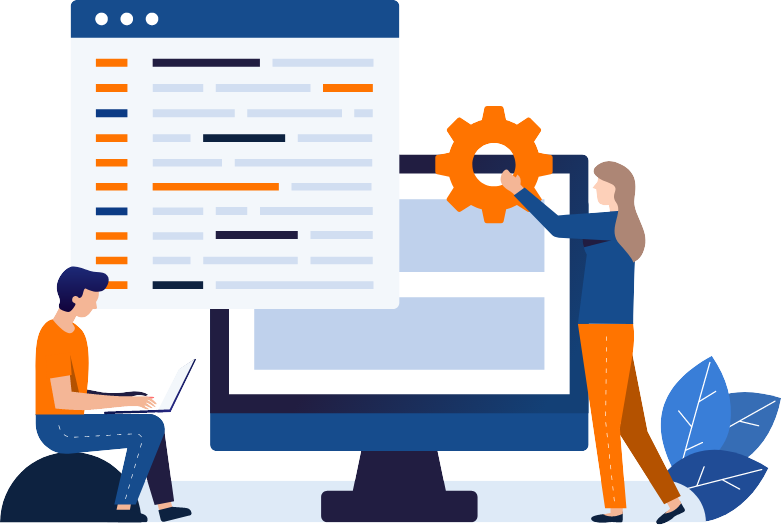RPA for Reconciliations & Close Procedures

Regardless of size, accounting reconciliation and close procedures are mandatory for every business. It is a tedious process that finance departments and small business owners must perform on a weekly, or often daily basis.
Finance and accounting professionals are under constant pressure to close their books fast and with 100% accuracy. But with hundreds of reconciliations performed manually on a regular basis, this becomes more and more difficult to achieve using time-consuming manual processes.
Robotic Process Automation (RPA) offers a solution to these issues by automating complex, high-volume, repetitive manual tasks often performed by finance and accounting professionals, while improving their existing processes.
How Thrive Automation’s RPA Solutions Can Help
At Thrive Automation, we have proudly partnered with the world’s top RPA technology and platform providers that offer the most advanced capabilities in order to help fulfill your accounting needs.
For banking and accounting professionals, RPA can help automate complex cross-referencing and validation of information from your bank. RPA also applies common rules-based procedures to reduce close times and improve the turnaround for management reporting.
Essentially, this helps reduce the amount of time spent on manual tasks and processes, and improve the speed and accuracy of their close process.
Below, we’ll take a deeper look into RPA and how it can simplify bank reconciliation and close processes.

At Thrive Automation, we have proudly partnered with the world’s top RPA technology and platform providers that offer the most advanced capabilities in order to help fulfill your accounting needs.
For banking and accounting professionals, RPA can help automate complex cross-referencing and validation of information from your bank. RPA also applies common rules-based procedures to reduce close times and improve the turnaround for management reporting.
Essentially, this helps reduce the amount of time spent on manual tasks and processes, and improve the speed and accuracy of their close process.
Below, we’ll take a deeper look into RPA and how it can simplify bank reconciliation and close processes.
What is RPA?
In the simplest of terms, RPA uses software to carry out business processes that would otherwise be performed by a human. Using RPA solutions, an organization can configure “bots” to take care of almost any repetitive, mundane, time-consuming business task.
When performed by humans, these tasks can waste valuable time and resources. But with RPA automation solutions implemented, these processes are fulfilled more quickly, which means your staff will have more time to focus on higher priority, higher value tasks. This also helps to reduce operational costs.
In the context of reconciliations and close procedures, RPA extracts documents and data, such as data files and register data files, and checks for discrepancies, which are then identified. RPA bots can even investigate these discrepancies, fix errors, and finalize and close the entries.
Why RPA for Finance and Accounting?
Bank Reconciliation and Close Procedures
![]()

RPA is an ideal technology for reconciliations and close procedures.
Here’s why: Reconciliations and close procedures rely on balance sheets, invoices, and accounting records. RPA can easily access these documents and acquire the relevant data to match the payment details to company data.
Reconciliation also uses rules-based processes that require access to multiple systems, such as ERP or payable systems, banks, and third-party service providers. RPA bots not only access all of these systems seamlessly and securely, but can also accurately carry out complex procedures that often result in errors when performed manually.
These procedures include:
- Onboarding new reconciliations
- Facilitating month-end reconciliations
- Carrying out vendor reconciliation
- Taking care of intercompany reconciliation
- Managing foreign currency accounts
- Conducting balance sheet substantiations
- Managing external suppliers
- Validating payments
- Checking for duplicate payments
- Checking line items of the bank statement against the general ledger
- Matching receipts for debit and credit card transactions
- Onboarding new reconciliations
- Facilitating month-end reconciliations
- Carrying out vendor reconciliation
- Taking care of intercompany reconciliation
- Managing foreign currency accounts
- Conducting balance sheet substantiations
- Managing external suppliers
- Validating payments
- Checking for duplicate payments
- Checking line items of the bank statement against the general ledger
- Matching receipts for debit and credit card transactions



RPA even helps automate simple, yet time-consuming tasks that are traditionally performed manually, such as:
- Opening screens and logging into accounts
- Downloading and opening spreadsheets and documents
- Processing of invoices
- Analyzing forms for missing information

With all of the above tasks and processes automated, organizations
can benefit from the following:
- Tasks are completed more quickly and with fewer errors
- Reconciliation history is recorded every step of the way and can be fully tracked
- Processes are streamlined, simplified, and more uniform, regardless of how many companies, businesses, banks, and accounts you are managing
- Data and calculations are more accurate and compliant
- Staff have more time to focus on higher priority tasks
- Errors can be discovered and corrected before they affect any calculations or downstream processes
- If any unmatched or suspicious transactions are found, RPA will send the records for further validation
- Complex intersystem reconciliation is eliminated
- Processes can be completed with fewer tasks and steps, and with less manual work
- Reporting is simplified and can be submitted to all relevant parties worry-free
- With 100% accurate reports, you can trust that all tax payment information is correct
- All systems are highly secure as bots aren’t subject to or capable of hacking
- Tasks are completed more quickly and with fewer errors
- Reconciliation history is recorded every step of the way and can be fully tracked
- Processes are streamlined, simplified, and more uniform, regardless of how many companies, businesses, banks, and accounts you are managing
- Data and calculations are more accurate and compliant
- Staff have more time to focus on higher priority tasks
- Errors can be discovered and corrected before they affect any calculations or downstream processes
- If any unmatched or suspicious transactions are found, RPA will send the records for further validation
- Complex intersystem reconciliation is eliminated
- Processes can be completed with fewer tasks and steps, and with less manual work
- Reporting is simplified and can be submitted to all relevant parties worry-free
- With 100% accurate reports, you can trust that all tax payment information is correct
- All systems are highly secure as bots aren’t subject to or capable of hacking
Financial Reports and Accounting
![]()
When it comes to financial reporting and general accounting tasks, RPA is also an effective
solution that can help help finance and accounting teams with the following:
Automating invoice distribution
Gathering and reconciling tax-related data
Monitoring customer payment information
Cross-checking vendor’s invoices with the purchasing order
Processing expenses
Updating general ledgers
Automating Accounts Receivable and Accounts Payable
Challenges of Account Reconciliation Without Automation
Despite all of the numerous benefits of RPA mentioned above, many organizations continue to reconcile data the old fashioned way, with pen and paper or an overwhelming number of Excel spreadsheets.
As a result, finance and accounting departments face numerous challenges.
These include:
Errors and Inconsistencies
![]()
There is a high risk for errors when accounting and finance professionals are manually handling large amounts of transactions and sub-ledgers, and navigating several external systems.
Such errors can include incorrect amounts, duplicated entries, and date and time discrepancies.
The reason for this is that a large volume of files must be downloaded and processed in the Core Banking System. With many different process scenarios, time norms, file types, and processes become extremely complex, leading to errors, inconsistency, and data integrity issues.
Plus, with reconciliation of account records taking place across several locations, manually comparing, extracting, and updating records is time-consuming and at a higher risk for costly errors.


Lack of Visibility
![]()
When relying on manual processes, it becomes very difficult to have real-time visibility into the progress of reconciliations and the reporting on exceptions.
Fragmented Data
![]()
When using multiple reconciliation formats, it becomes difficult to achieve any kind of standardization. The result is often fragmented data and reconciliations that are prone to errors.
Furthermore, without proper standardization, anyone within your organization that requires access to your reconciliations will have difficulty doing so.
Inability to Scale
![]()
Regardless of size, any business must be able to respond quickly and accurately to any situation, and unfortunately, by using Excel alone, teams are unable to do this.
For instance, Excel lacks any real workflow automation or underlying database, and can hinder your ability to scale your medium-to-large sized business.
Time is Wasted
![]()
When high value tasks are completed manually, employees are forced to spend all their time on mundane, repetitive processes, rather than focused on higher value tasks.
In fact, a survey from EY found that 59% of finance department resources are spent on handling transaction-intensive work.
It’s important to note that RPA does not seek to replace human employees with robots.
In fact, it’s quite the opposite. RPA helps you augment certain roles, improve productivity, and give your team the gift of time and peace of mind. As a result, your team will feel empowered to focus on more important, productive tasks. These might include investigating outliers, looking at trends, providing analysis, advising the business, and providing impactful financial data to shape their organizations’ future, while still closing their books on time and with 100% accuracy.

Think RPA is Right For You?
Whether you are a beginner to the world of Robotic Process Automation and require some guidance, or you are already familiar with RPA solutions, our goal at Thrive Automation is to ensure your organization is fully supported and empowered to implement RPA in a way that helps your business reach its full potential.
We offer custom training packages, audits, educational materials, roadmaps, and plenty of ongoing support for any organization looking to utilize RPA to streamline their reconciliation and close processes while saving time and money.
